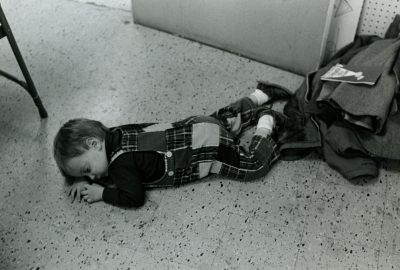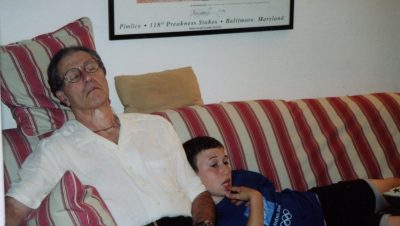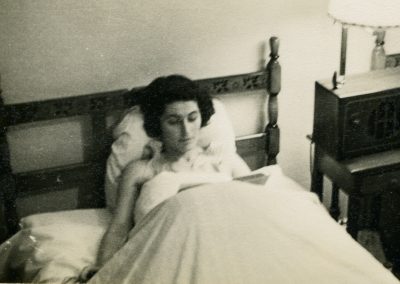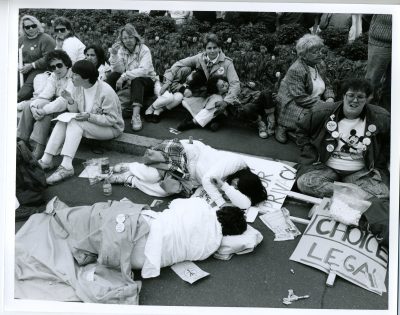Mental Health Mondays: Sleep

We are not mental health professionals. If you are feeling overwhelmed with emotions like anxiety or depression, or they are impacting your daily life, please reach out to professionals who can help you. If you need immediate help, use the National Suicide Hotline, 1-800-273-8255, which offers online chats as well. Jewish Community Services also offer help to people experiencing emotional crises.
We aim to provide some tips and guides to help those who are self-isolating and to connect with our JMM community. These ideas might not work for everyone, but we hope that by starting the conversation about mental health, we can inspire you to take a moment to breathe and reflect on what you need today to feel good.
It’s a common stat that people will spend about one-third of their lifetime asleep. However, getting the proper 8 hours of sleep (and yes 8 hours is the recommended amount for adults) can be difficult. In a time when people are feeling anxious or stressed or their regular routines are upended, it can be almost impossible to get a restful and full night’s sleep. We’re going to talk about some of the reasons why you need to sleep and some tips for getting better sleep!

Sleeping affects not only how well you can think the next day but also your physical health. Lack of proper sleep can increase the chance of heart disease, strokes, and other issues. Your body works to repair heart and blood vessels, and so losing out on that time can make you more susceptible to a whole host of diseases. Sleep also helps balance the healthy hormones in your body, affecting not only children and teens as they grow but also the hormones that control cell repair and muscle mass growth. So, sleep is essential when you’re working out to actually help with muscle growth. Additionally, sleep is crucial for maintaining a healthy immune system, something that should always be a priority but is only more important today.
Of course, we’re familiar with the mental effects of lack of sleep. Being sleep deprived affects a person’s ability to focus and process information. It also causes memory loss. This lack of cognitive function can be downright dangerous, if that person is driving, for example. Some have compared drowsy driving to drunk driving, and claim that driving without sleep in a 24 hour period is like driving with a blood-alcohol level of .10. Sleep deprivation can affect cognitive performance in all areas of your life, so it’s important to get enough sleep so that you can be alert and ready to face whatever challenges come your way.

Sleep also affects your emotional state, and your mental health can impact your quality of sleep. This relationship is complex, but trying to find ways to get better sleep can help a person living with depression, anxiety, or other mental health disorders.
Getting that good night’s rest is easier said than done. If you experience dramatic disruptions to your sleep, and you are consistently sleep deprived, we recommend that you seek out help with your Primary Care Physician or with a sleep professional. It’s vital for your health to get the help you need. If your sleeplessness is only occasional and not greatly impact your life, here are some tips to help get better sleep.
1. Keep a consistent bedtime routine. Going to bed and waking up at the same time every day will help you to fall asleep and stay asleep. Once you’re in the habit of going to bed around the same time, your body will start to recognize when it’s time to get sleepy, allowing you to fall asleep faster. It can also help you to feel more awake if you’re waking up at the same time every day. Just make sure to schedule in those full 8 hours.
2. Exercise regularly. Exercising in the morning or in the afternoon helps your body to release stress and tire itself out. Exercising can make you feel more awake, perfect for that afternoon slump, and then allows for a natural fall of energy that can help you fall asleep easier. With that in mind, exercising too close to bedtime can make you feel too pepped up, making it more difficult to catch some shut-eye. If you want to practice a movement before bed, I recommend trying out a nighttime yoga routine that can help stretch out your muscles and relax your back, preparing you for bed in a gentler way.
3. Turn off your screens before bedtime. Taking an hour away from electronics, which give off blue light. Our eyes don’t block blue light as well and so more of it is transmitted to our brains. This light actually affects the way our hormones are released, even blocking melatonin, which helps us to fall asleep. Spend an hour not looking at your computer, tv, or phone and instead do some stretching, read a book, or relax without any electronics.

4. Stay away from caffeine and alcohol. Caffeine helps us to stay awake, and so it’s not a good idea to drink a cup of coffee before bed. Alcohol may cause you to fall asleep quickly, but it affects the quality of sleep you get. It affects the rhythms of your sleep and can block the high-quality restful sleep that you should be getting every night. Avoid both and similar substances right before bed, to prevent sleeplessness and waking up feeling drowsy (and hungover).
5. Make a restful environment. Your bedroom, and bed, should be a haven for you to relax and sleep. Make sure that you have a comfortable mattress (that still supports you properly), pillows, and blankets. Ensure that the room is dark at night, as light affects your circadian rhythm, which is the wake/sleep cycle your body experiences. Keeping your room at a cool temperature, between 60-67 degrees according to some experts, also helps you to fall asleep and stay asleep. And make sure that you’re only using your bed for sleep. Watching tv, working from home, eating, and other daytime activities should be done in other places in your home. Keeping your bed exclusively as a place to sleep will help signal to your brain it’s time to rest when you lay down.

We hope that these tips help you the next time you’re feeling sleeplessness. Remember, if sleep deprivation is affecting your everyday life, we highly recommend you seek out professional help. Getting quality sleep greatly impacts your health and wellbeing.
